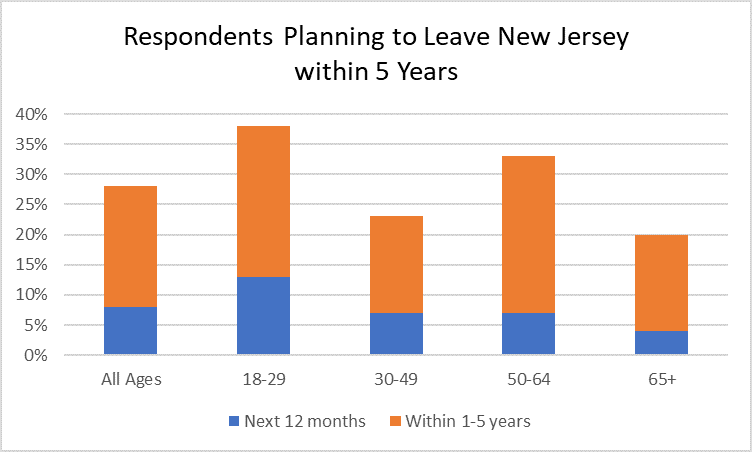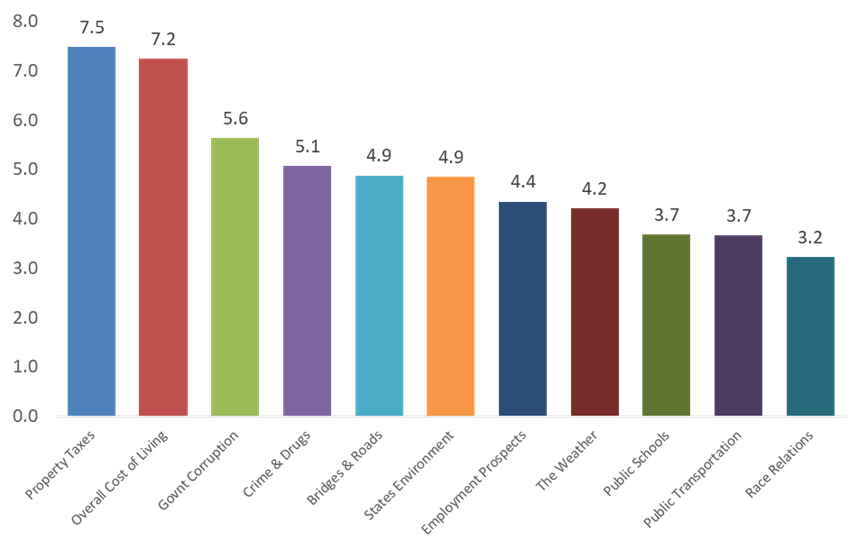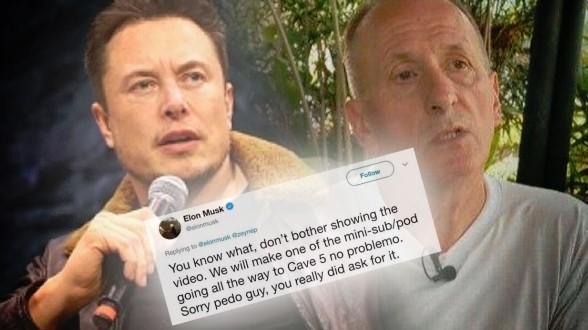Authored by John Whitehead via The Rutherford Institute,
“As we express our gratitude, we must never forget that the highest appreciation is not to utter words, but to live by them.”
– John F. Kennedy
Once again, it’s been a hard, heart-wrenching, stomach-churning kind of year.
It’s been a year of hotheads and blowhards and killing sprees and bloodshed and takedowns.
It’s been a year in which tyranny took a few more steps forward and freedom got knocked down a few more notches.
It’s been a year with an abundance of bad news and a shortage of good news.
It’s been a year of too much hate and too little kindness.
It’s been a year in which politics and profit margins took precedence over decency, compassion and human-kindness.
And now we find ourselves at this present moment, understandably overwhelmed by all that is wrong in the world and struggling to reflect and give thanks for what is good.
It’s not easy, and it’s getting harder by the day.
After all, how do you give thanks for freedoms that are constantly being eroded? How do you express gratitude for one’s safety when the perils posed by the American police state grow more treacherous by the day? How do you come together as a nation in thanksgiving when the powers-that-be continue to polarize and divide us into warring factions?
With every passing day, the U.S. government more closely resembles an evil empire, governed by laws that are rash, unjust and unconstitutional; policed by government agents who are corrupt, hypocritical and abusive; a menace to its own people; and the antithesis of everything the founders hoped the government would be—a blessing to all the people.
We’re not just dealing with misguided government officials run amok.
This is evil disguised as bureaucracy.
This is what Hannah Arendt referred to as the banality of evil.
Evil has a broad spectrum, but still… evil is evil.
Evil is what happens when government bureaucrats unquestioningly carry out orders that are immoral and inhumane; obey immoral instructions unthinkingly; march in lockstep with tyrants; mindlessly perpetuate acts of terror and inhumanity; and justify it all as just “doing one’s job.”
To that list, let me add one more: a populace that remains silent in the face of wrongdoing.
This is how evil prevails: when good men and women do nothing.
By doing nothing, by remaining silent, by being bystanders to injustice, hate and wrongdoing, good people become as guilty as the perpetrator.
There’s a term for this phenomenon where people stand by, watch and do nothing—even when there is no risk to their safety—while some horrific act takes place (someone is mugged or raped or bullied or left to die): it’s called the bystander effect.
It works the same whether you’re talking about kids watching bullies torment a fellow student on a playground, bystanders watching someone dying on a sidewalk, or citizens remaining silent in the face of government atrocities.
We need to stop being silent bystanders.
So what can you do about this bystander effect?
Be a hero, suggests psychologist Philip Zimbardo.
“Each of us has an inner hero we can draw upon in an emergency,” Zimbardo concluded. “If you think there is even a possibility that someone needs help, act on it. You may save a life. You are the modern version of the Good Samaritan that makes the world a better place for all of us.”
Zimbardo is the psychologist who carried out the Stanford Prison Experiment which studied the impact of perceived power and authority on middleclass students who were assigned to act as prisoners and prison guards. The experiment revealed that power does indeed corrupt (the appointed guards became increasingly abusive), and those who were relegated to being prisoners acted increasingly “submissive and depersonalized, taking the abuse and saying little in protest.”
What is the antidote to group think and the bystander effect?
Be an individual. Listen to your inner voice. Take responsibility.
“If you find yourself in an ambiguous situation, resist the urge to look to others and go with your gut instinct,” advises Melissa Burkley in Psychology Today. “If you think there is even a possibility that someone is in need, act on it. At worst, you will embarrass yourself for a few minutes, but at best, you will save a life.”
“Even if people recognize that they are witnessing a crime, they may still fail to intervene if they do not take personal responsibility for helping the victim,” writes Burkley. “The problem is that the more bystanders there are, the less responsible each individual feels.”
In other words, recognize injustice.
Don’t turn away from suffering.
Refuse to remain silent. Take a stand. Speak up. Speak out.
This is what Zimbardo refers to as “the power of one.”
All it takes is one person breaking away from the fold to change the dynamics of a situation.
“Once any one helps, then in seconds others will join in because a new social norm emerges,” notes Zimbardo. “Do Something Helpful.”
The Good Samaritans of this world don’t always get recognized, but they’re doing their part to push back against the darkness.
For instance, a few years ago in Florida, a family of six—four adults and two young boys—were swept out to sea by a powerful rip current in Panama City Beach. There was no lifeguard on duty. The police were standing by, waiting for a rescue boat. And the few people who had tried to help ended up stranded, as well.
Those on shore grouped together and formed a human chain. What started with five volunteers grew to 15, then 80 people, some of whom couldn’t swim.
One by one, they linked hands and stretched as far as their chain would go. The strongest of the volunteers swam out beyond the chain and began passing the stranded victims of the rip current down the chain.
One by one, they rescued those in trouble and pulled each other in.
There’s a moral here for what needs to happen in this country if we only can band together and prevail against the riptides that threaten to overwhelm us.
So here’s what I suggest.
Instead of just giving thanks this holiday season with words that are too soon forgotten, why not put your gratitude into action with deeds that spread a little kindness, lighten someone’s burden, and brighten some dark corner?
Pay your blessings forward in whatever way makes sense to you.
This is something that everyone can do no matter how tight our budgets or how crowded our schedules.
Engage in acts of kindness. Smile more. Fight less. Build bridges. Refuse to toxic politics define your relationships. Focus on the things that unite instead of that which divides. Be a hero, whether or not anyone ever notices.
Do your part to push back against the meanness of our culture with conscious compassion and humanity. Moods are contagious, the good and the bad. They can be passed from person to person. So can the actions associated with those moods, the good and the bad.
Even holding the door for someone or giving up your seat on a crowded train are acts of benevolence that, magnified by other such acts, can spark a movement.
Volunteer at a soup kitchen or donate to a charity that does good work. Take part in local food drives. Take a meal to a needy family. “Adopt” an elderly person at a nursing home. Advocate for the creation of local homeless shelters in your community. Urge your churches, synagogues and mosques to act as rotating thermal shelters for the homeless during the cold winter months. Support groups like The Rutherford Institute that are tirelessly working to advance the cause of freedom.
In other words, help those in need.
I know that fixing what’s wrong with this country is not going to happen overnight.
There may not be much we can do to avoid the dismal reality of the police state in the long term—not so long as the powers-that-be continue to call the shots and allow profit margins to take precedence over the needs of people—but in the short term, there are things we can all do right now to make this world (or at least our small corners of it) a little bit kinder, a lot less hostile and more just.
On a larger scale, we need to stop being silent bystanders to our nation’s downfall.
Historically, this bystander syndrome in which people remain silent and disengaged—mere onlookers—in the face of abject horrors and injustice has resulted in whole populations being conditioned to tolerate unspoken cruelty toward their fellow human beings: the crucifixion and slaughter of innocents by the Romans, the torture of the Inquisition, the atrocities of the Nazis, the butchery of the Fascists, the bloodshed by the Communists, and the cold-blooded war machines run by the military industrial complex.
“I swore never to be silent whenever and wherever human beings endure suffering and humiliation,” stated Holocaust Elie Wiesel in his Nobel Peace Prize acceptance speech in 1986.
“We must always take sides. Neutrality helps the oppressor, never the victim. Silence encourages the tormentor, never the tormented. Sometimes we must interfere. When human lives are endangered, when human dignity is in jeopardy, national borders and sensitivities become irrelevant. Wherever men or women are persecuted because of their race, religion, or political views, that place must – at that moment – become the center of the universe.”
As I make clear in my book Battlefield America: The War on the American People, it’s never too late to start making things right in the world.
So this year, don’t just give thanks. Pay your blessings forward.






